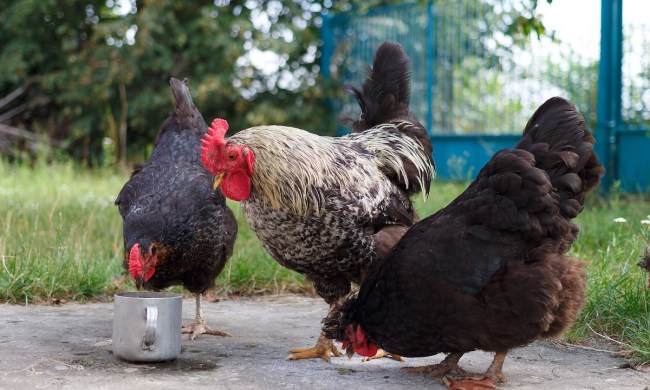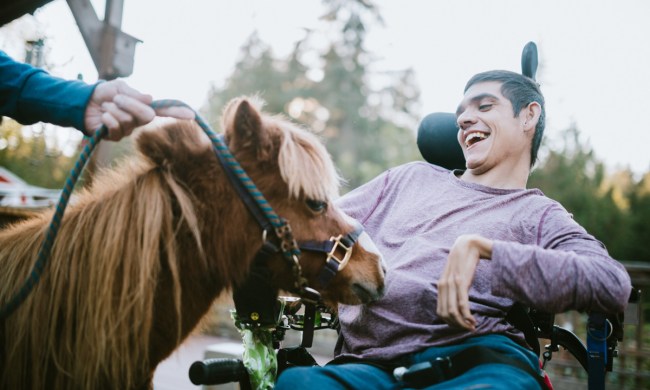It’s a straight-up fact: Macaws are amazing. Brightly colored. Fiercely intelligent. Chatty Cathys. You can look at just about any aspect of their sparkling personalities and find something to love. Of course, that doesn’t mean these birds are the right pet for everyone. As large, long-living creatures, they will fit well with a certain type of family: one with a lot of space and time to offer attention in excess. Still, welcoming a macaw into your fold will guarantee you endless entertainment and a lot of affection.
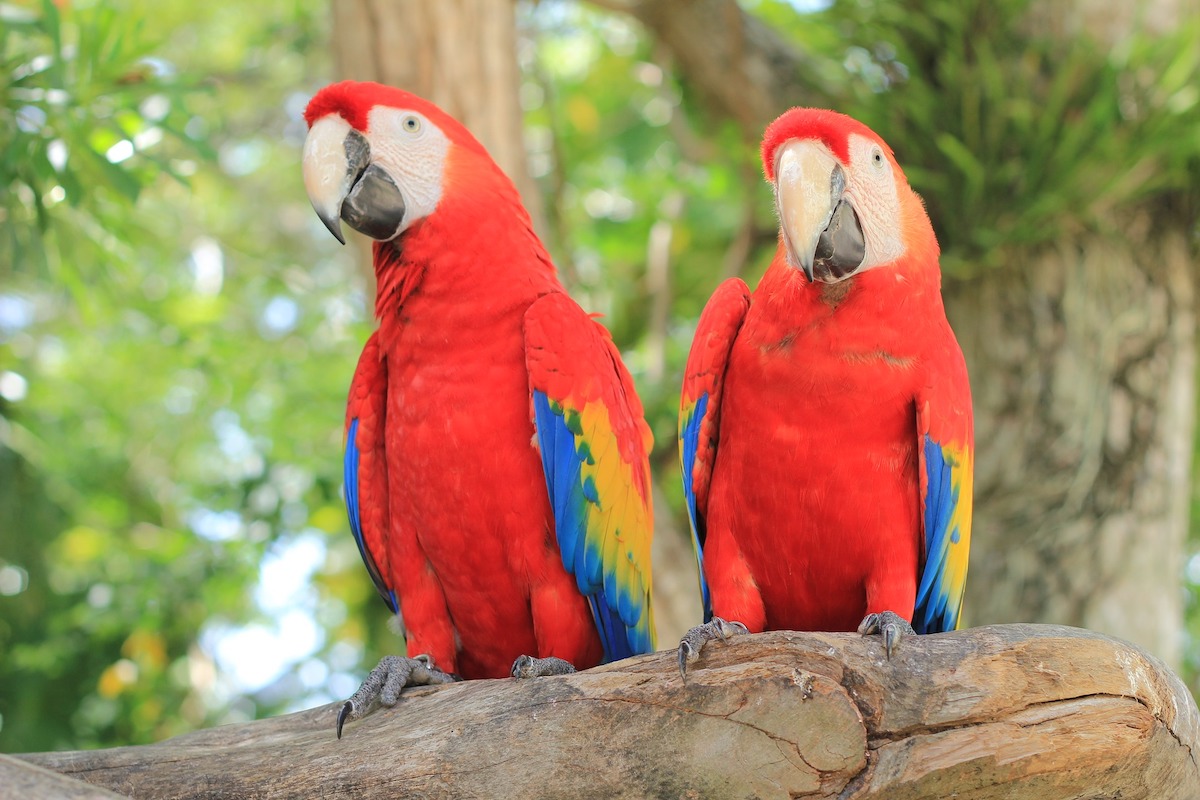
Macaws can live up to 50 years
That’s right — half a century. So, if you get a pet macaw as a kid, he’ll happily attend your retirement party. Some breeds live longer than others, and occasionally these guys have been known to even pass their golden jubilee. As with all pets, owning this bird means making a commitment — for decades in this case.
They’re the biggest pet bird
Unless you have an ostrich (or are a professional falconer), the hyacinth macaw is the biggest bird that we keep as pets. It’s the largest of the parrot family with a wingspan of 5 feet. For this reason, you can’t keep this bird in a little cage — he will need an aviary or large room to call his own. One other good part about this: Because they’re so big, many hyacinth macaws can live peacefully with cats and dogs, who won’t see them as easy prey.
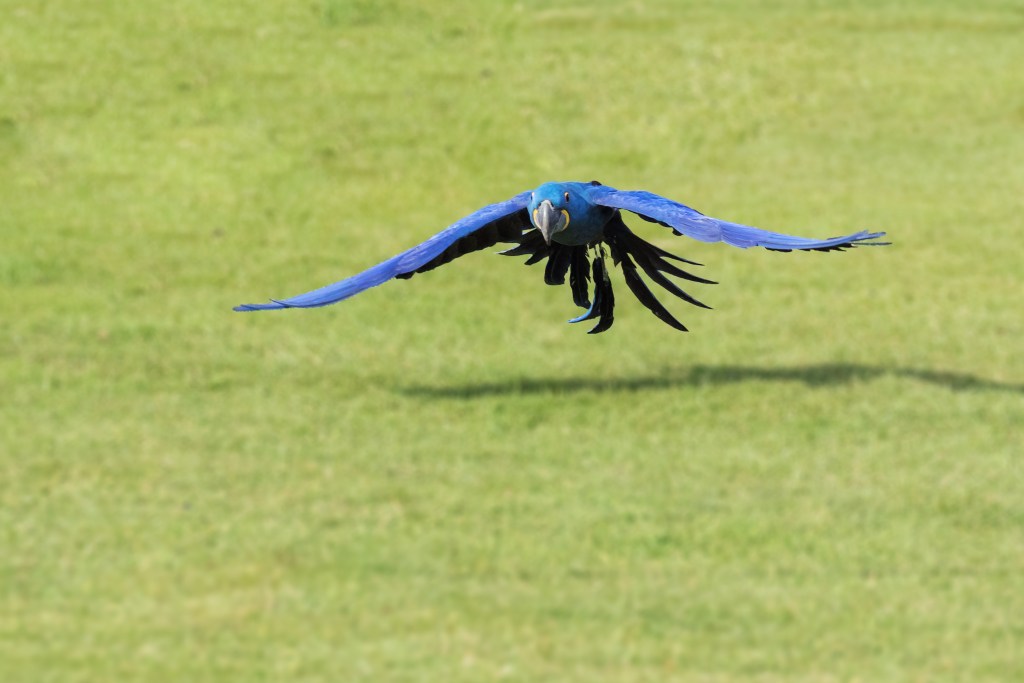
They’ve been pets for almost 2,500 years
Or at least their cousins. The earliest recording of a parrot in captivity was 400 B.C. This may be part of the reason why we have such a bond with them and why they can learn to communicate so well with humans. Some breeds have spent a long time around us! And it seems they’ve picked something up.
They can learn to talk
Macaws are intelligent and social creatures, which helps them mimic human speech and gives them an urge to converse. Sometimes too much, as any parrot owner will attest. Bird vocal organs don’t look like mammalian ones, instead they use their syrinx to speak. Your animal’s vocabulary won’t match that of the African grey, but you can (and should) teach him a few words, phrases, and songs. He’ll love using this new skill to interact with you and even other pets in the household.
Macaw parents name their kids
Well, sort of. In the wild, macaws “talk” to each other with chirps and squawks. They court their mates, warn the flock of danger, and give their offspring names or something close to it. Many macaws designate clicks or trills to differentiate between members of their families. We certainly recommend teaching your parrot your name in English and perhaps he’ll translate it for you.
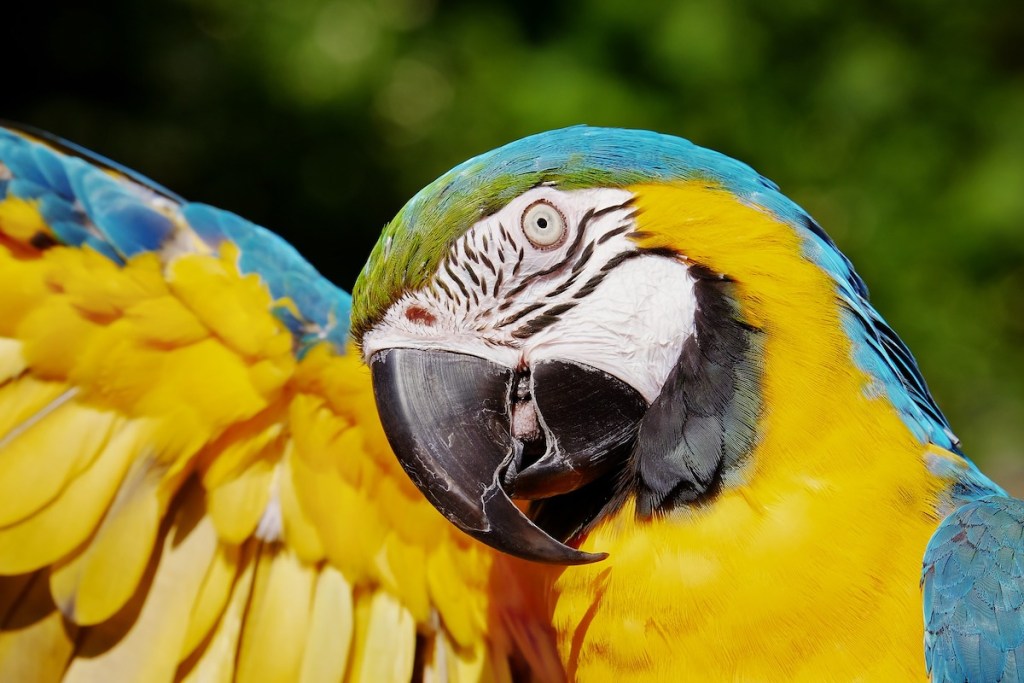
Some macaws mate for life
They capture their partner’s attention with elaborate song and dance (or at least tail and vocal displays) and stay with the bird of their choice their whole long lives. Once mated, both males and females spend time incubating the eggs — these guys make very equitable parents. You’ll need to keep this in mind when choosing your pet since you would never want to separate a pair of love birds.
Many species are endangered or threatened
The problem is twofold: Macaws face loss of habitat and reduced numbers from the pet trade. That doesn’t mean you can’t own a macaw, but it does mean you should do your research and find a bird that’s been bred ethically. Consider adopting an animal in need of rehoming. Since they live so long, you will still have plenty of years left with your new avian. You can also donate to bird rescue organizations in his honor like the World Parrot Trust.
Sold on ownership with these facts about macaws? Remember that these birds require a ton of attention and training. If you get him as a small chick, you can’t just stick with imparting a large vocabulary. While they’re fairly easy to tame, it takes dedication to get your big bird to bond with you and others in the family. You also need to research their diet and habitat requirements (which vary by species) thoroughly before bringing home a feathered friend.

